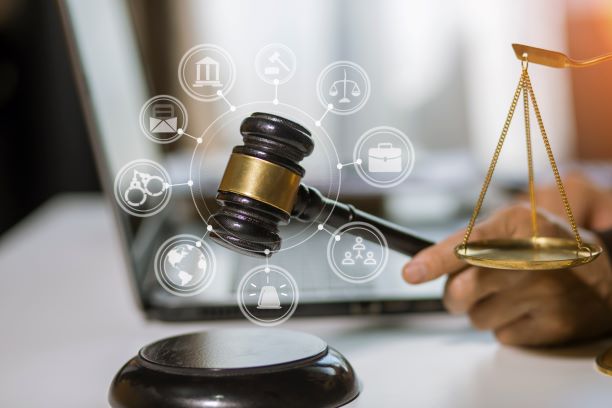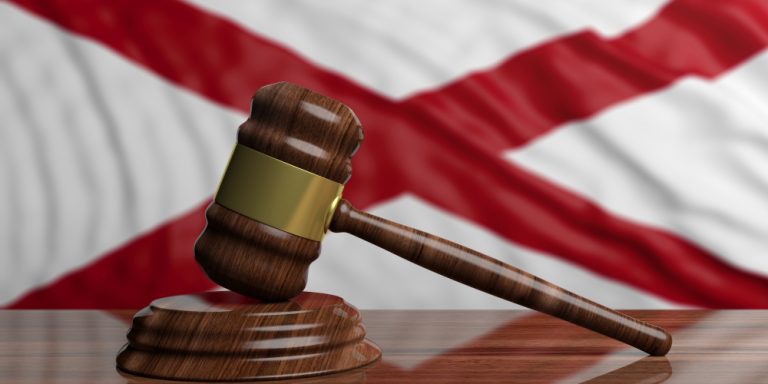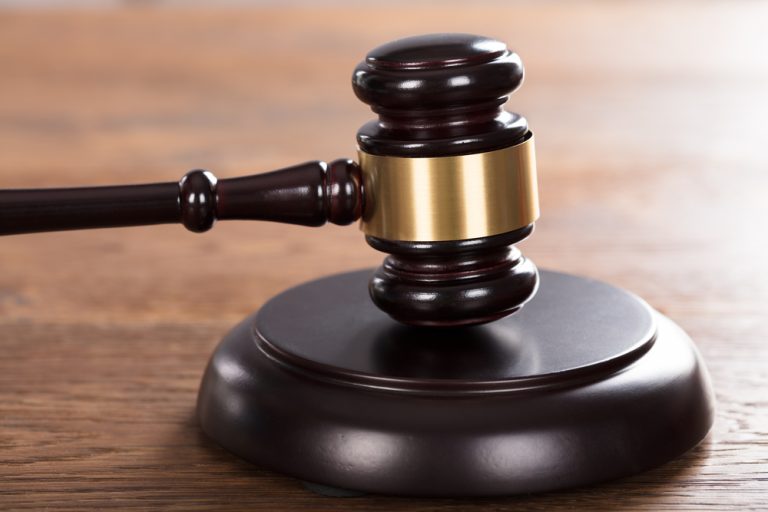What Are the Constitutional Considerations in Resuming Civil Jury Trials During a Pandemic?
What Are the Constitutional Considerations in Resuming Civil Jury Trials During a Pandemic?
As the judicial system attempts to recover from the effects of the COVID-19 crisis, basic constitutional rights in civil as well as criminal cases must be protected in the haste to resume trial proceedings.
The COVID-19 pandemic has stalked the world for approximately seven months now, causing untold misery and deaths, disruption of many aspects of normal society and, in addition, bringing jury trials to a complete halt and otherwise wreaking havoc on court proceedings. Courts across the country have sought to address the situation in differing ways, all with the aim of restarting civil jury trials as soon as possible. Some courts have embarked upon a program of conducting jury trials remotely, using Zoom, Ring Central, Microsoft Teams, Webex or other platforms. The concept is that jury trials would be conducted without jurors physically present in courtrooms, but viewing the proceedings and deliberating by way of web conferencing platforms.
The sense of urgency in restarting our system of jury trials in both civil and criminal matters is understandable. After all, the very reason for courts’ existence is the resolution of cases. Two of the first 10 Amendments to the U.S. Constitution specifically address jury trials, and the jury system has become the bedrock of the judicial branch of our national and state governments.
As the judicial system attempts to recover from the effects of the COVID-19 crisis, basic constitutional rights in civil as well as criminal cases must be protected in the haste to resume trial proceedings. In contrast to criminal cases, there has been relatively little attention paid to constitutional implications involved in rushing to restart the civil side of the trial dockets. However, the Constitution of the United States and of several states provide important protections for parties to civil cases, which must not be overlooked while recovering from the pandemic.
The issue of whether a constitutionally adequate jury can be selected by remote proceeding must be considered. By definition, only those with internet access can qualify for remote service, and while those users may constitute a significant majority of the U.S. population, not everyone is included. The day is long past in which education, property or other such characteristics are requisites for jury service, but pushing toward remote trial could raise similar implications. For instance, what of potential jurors who do not know how to use the required technology, who cannot afford or otherwise lack access to the internet or who have no place to be alone to observe the proceedings? Excluding these members of society from jury service is exactly the type of class distinction and discrimination condemned by courts across the land.
Technology Can Impact Court Proceedings
Setting that issue aside, the process of jury selection is always a key element in any trial, civil or criminal, and is a particular point of concern in the context of current coronavirus restrictions. Recent experience has shown that technology has not uniformly been able to foster adequate jury selection procedures in remote proceedings. For example, in a Jacksonville-Duval County case, jury selection for a one-day trial took two days to complete. Connection problems necessitated the removal of one juror from the panel who had been selected. In a Miami-Dade County case, jury selection was described as “quite casual,” with some prospective jurors appearing to be doing other activities during the proceeding.
The example which perhaps raises the most concern occurred recently in a California trial, Wilgenbusch v. American Biltrite. There, venire members were observed during the remote jury selection process reclining on a bed and possibly asleep, distracted with children and disappearing from the screen, working out on an exercise machine or using computers for other activities. Objections by defense counsel could not be heard, initially, because lead counsel for one of the defendants was barred from attending the voir dire process at the courthouse, and later because counsel could not be taken off “mute” because of problems with the remote setup.
In an asbestos trial in another California court, similar practical and constitutional concerns about remote jury selection were presented to the California First District Court of Appeal in Honeywell International v. Superior Court for the County of Alameda. The petition was denied the following day by the appellate court in an order which acknowledged the seriousness of the defendant’s points, while holding that those issues could not be reached pre-trial, but must await a full appeal after the verdict.
In Florida, as well as most other jurisdictions, the right to adequate jury examination is a fundamental right of parties in a civil case. As the Florida and especially California examples demonstrate, it is extremely difficult, if not impossible, for a trial judge to adequately control the jury selection process remotely. Issues with the confidentiality of “chat rooms” where counsel can discuss jury selection with colleagues, and the literal impossibility of ensuring that prospective jurors adhere to court instructions, all present barriers to effective and sufficient jury examination and selection.
Challenges Faced in Remote Proceedings
In remote proceedings, will counsel for the parties be able to visualize every member of the venire panel during jury questioning? Any experienced trial lawyer can attest that it is necessary to closely monitor jury reactions to developments, in addition to any verbal responses made by prospective jurors during questioning. A jury is made up of individuals, certainly, but how those individuals are likely to interact with and relate to one another forms an integral part of any trial lawyer’s assessment of a prospective jury.
This consideration goes beyond the jury selection process itself. Many times, a jury’s individual and collective reaction to a development at trial can and does influence counsel’s appreciation and evaluation of the trial progress. Plaintiffs as well as defendants are ill-served by a lawyer’s inability to observe jurors’ body language and other reactions during trial. In any remote proceeding, a lawyer’s perception of the jury’s (and judge’s) understanding of and receptiveness to evidence or argument must necessarily be dramatically handicapped.
In some of the cases mentioned above, witnesses testified while wearing protective masks. Concealing the features of a testifying witness markedly detracts from the ability of jurors as well as counsel to truly weigh the credibility of that witness, even in the course of live, in-court proceedings. This becomes even more of a problem if the witness is presented remotely. In the latter instance, the jury is deprived of the opportunity to observe the witness’ demeanor and to accurately weigh her or his ability to accurately recall the events about which the testimony revolves.
Jurors are typically forbidden to consult sources outside the evidence (including information from the internet) and court instructions in the process of arriving at a decision. This principle is difficult enough to enforce during “normal” in-court trial procedures, as shown by a number of cases in which jurors have flagrantly disregarded this instruction, and the difficulties will necessarily be compounded in any remote setting. It requires little imagination to envision a juror who is already using the internet to attend trial, to simply enter a Google search term on the subject of the case, even while the proceeding is ongoing.
Remote jury trials will render the presentation of physical evidence much more difficult, if not essentially impossible in many situations. In a products liability trial, for example, close examination of machine components, glass fragments, threads or small pieces of fabric, or other items by a remote jury cannot be accomplished. In some cases, that may be of minimal importance; in others, the inability of experts and counsel to have the jury perceive the actual evidence for themselves, will be crucial.
The Question
At what point do issues with jury qualifications and presentation of evidence, along with the ability of the parties and counsel to observe the jury during the proceeding, cease to become merely tactical considerations and become constitutionally significant? When do such problems amount to the denial of a fair trial by an impartial jury?
The difficulty in answering those questions stems from the fact that the current COVID-19 pandemic, and the necessary restrictions on personal movement and interaction, are unprecedented. As mentioned above, all courts must attempt to resume operations, notably the trial of cases, as quickly as this may be accomplished. The task of the judiciary is unenviable. Our civil trial system has been effectively immobilized for months, and the pressure to do something, almost anything, to get the court systems moving again mounts unceasingly. Many court systems simply lack the physical or financial capability to modify courtrooms for safe, in-person jury trials in the pandemic environment. Thus, remote trials are offered as a way to re-embark upon the resolution of cases without waiting on the pandemic to run its course.
However, the court system must avoid the temptation to adopt procedures in response to the crisis in ways that run counter to basic rights of litigants in civil cases—the “cure” being worse than the disease. Such considerations go beyond mere issues of tactics or inconvenience, at least in many cases. There may be cases which are suitable for remote presentation by the parties, who may well agree to submit the matter to a civil jury in this manner even given the problems which have been encountered as described above. Other cases, however, will present problems rising to constitutional levels if forced to proceed to trial in a remote context. Counsel and judges should carefully consider the rights of litigants before making decisions on the basis of expediency.
Reprinted with permission from the October 13, 2020 edition of Daily Business Review © 2020 ALM Media Properties, LLC. All rights reserved. Further duplication without permission is prohibited, contact 877-257-3382 or reprints@alm.com.







